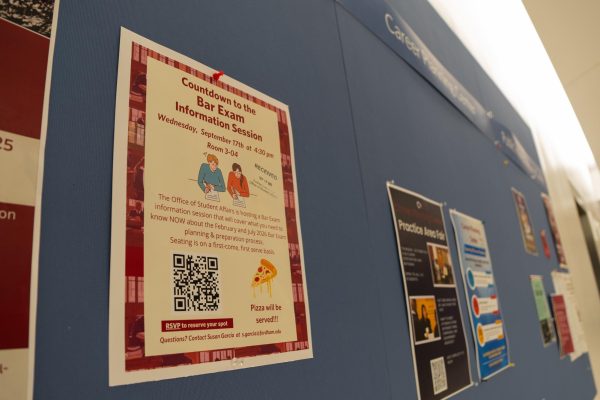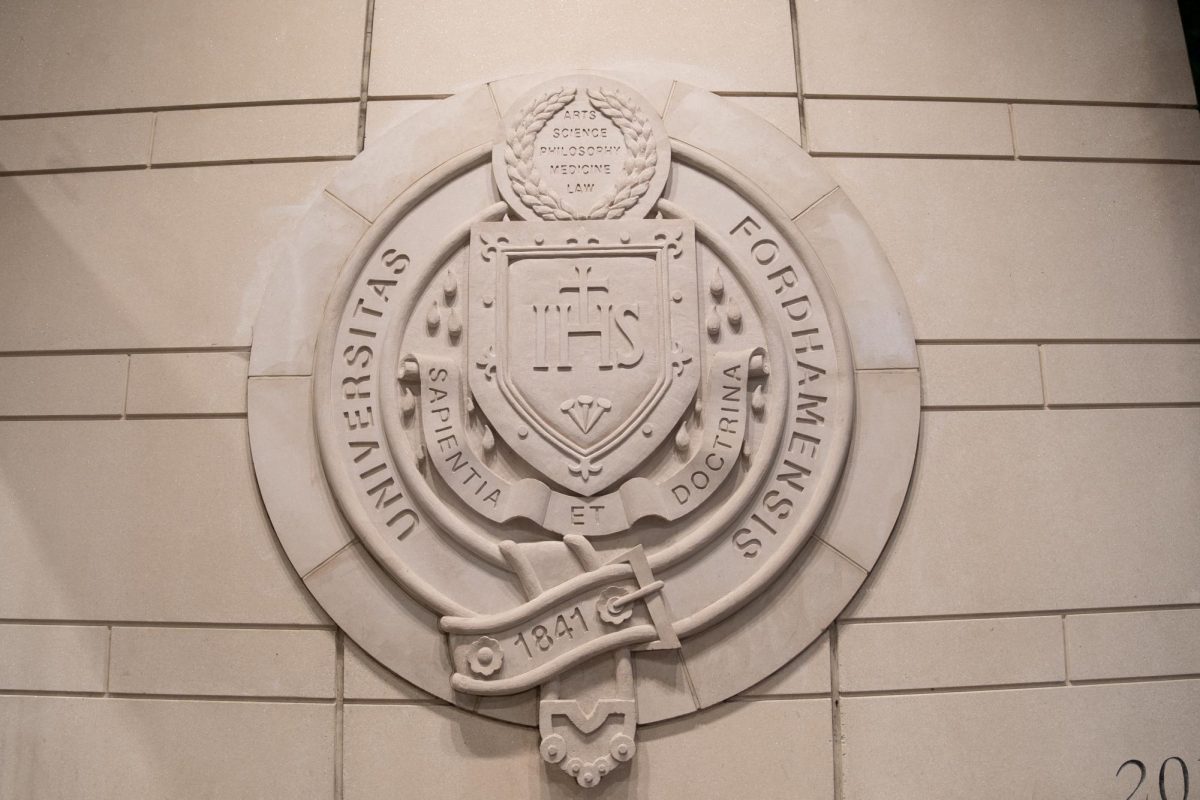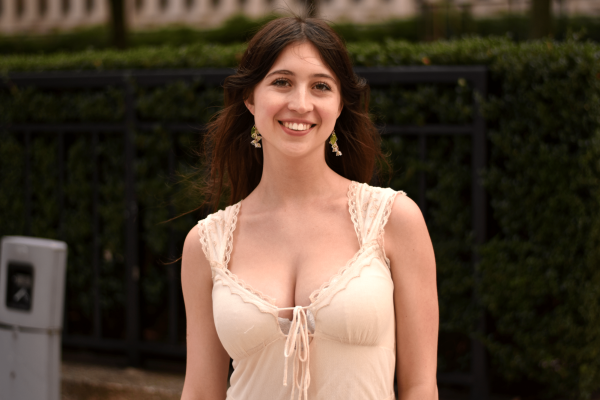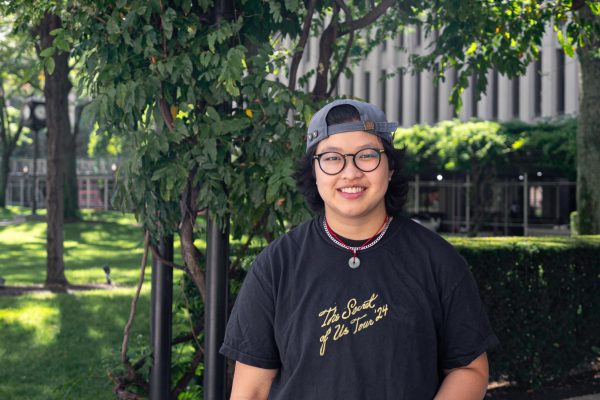Fordham’s undergraduate pre-professional advising program will undergo major changes during the 2025-26 academic year as the university integrates a new assistant dean for pre-professional advising.
The new dean will oversee the pre-law and pre-health advising programs and expand pre-professional advising as a whole. Alongside these changes, the university will also introduce a new vice president for student success.
According to Jennifer Petra, associate vice president for media and public relations, these decisions aim to broaden Fordham pre-professional advising program’s offerings to meet “student needs and gaps in services.”
“The change to provide a broader scope for pre-professional advising was made based on student demand. Pre-professional advising, for example, will not only gear students towards graduate and professional school but also to a host of broader career opportunities that we want students to be able to take advantage of,” Petra said.
The pre-law track at Fordham does not have any required courses and consists primarily of a spring symposium — a one-credit course offered exclusively at Fordham College at Rose Hill (FCRH) introducing students to the law school application process. Students also receive guidance from specific advisors on LSAT prep, applications and relevant programs like the 3-3 program, which allows students to receive an undergraduate and law school degree from any of the Fordham colleges and the Fordham Law School in a total of six years rather than seven.
This guidance was given by former Assistant Dean for Pre-Law Advising Hillary Mantis, whose position was eliminated in early September, and will now be the purview of the new assistant dean for pre-professional advising.
“The change to provide a broader scope for pre-professional advising was made based on student demand. Pre-professional advising, for example, will not only gear students towards graduate and professional school but also to a host of broader career opportunities that we want students to be able to take advantage of.” Jennifer Petra, Associate Vice President for Media and Public Relations
The pre-health program’s offerings are comprised of a symposium, peer mentorship, connecting students to experiential learning opportunities like clinical experience and research, and personalized advising. The Fordham College at Lincoln Center (FCLC) Committee on Health Professions is another part of the program and works with upperclassmen and alumni for several months on their medical school applications, which require a committee letter of recommendation. Martin di Grandi is the pre-law advisor for FCRH and Laura Bigaouette is the interim program director and pre-health advisor for FCLC. As of yet, no further personnel and structural changes have been announced to the program, beyond the oversight of the new assistant dean for pre-professional advising.
The dean’s responsibilities will include advising students on course selection and requirements, aiding with applications and test preparation for professional schools, organizing and leading informational sessions and collaborating with Fordham staff, student organizations and professional schools to facilitate networking and experiential learning opportunities.
Petra also wrote that the dean will also focus on supporting “diverse student populations, including underrepresented and first-generation college students.”
Per student need, pre-professional advising may expand to include other pre-professional tracks and accelerated master’s programs.
“This position will be situated in the FCRH and FCLC Dean’s Offices working directly with undergraduates; we will absolutely be able to provide guidance on professional paths across disciplines,” Petra said.
“No one had told us and informed us that the pre-law advising program was over or that the dean was fired, so we were a bit shocked and we didn’t know where to go from there.” Alyssa Hurtado, President of the Pre-Law Society FCLC ’27
These changes, in particular Mantis’ departure from Fordham, caused some initial confusion for some pre-law students, who mistakenly thought the pre-law advising program itself had been terminated.
Alyssa Hurtado, president of the pre-law society and FCLC ’27, expressed her frustration and said that “(the pre-law society) was kind of left in the dark.”
“No one had told us and informed us that the pre-law advising program was over or that the dean was fired, so we were a bit shocked and we didn’t know where to go from there,” Hurtado said. “I feel like someone else from Fordham should have informed us.”

FCLC’s Pre-Law Society had been in contact with Mantis on Aug. 27 when Mantis confirmed she would attend their first event of the year — Cupcakes with Dean Mantis — which was a recurring tradition of the club. The event was scheduled for Sept. 4, but did not end up happening.
The club emailed Mantis for clarification on the event and received an automatic response that read: “Hillary Mantis is no longer with Academic Advising. Please contact the FCRH Dean’s Office, [email protected], for assistance with student or pre-law matters.”
Hurtado also expressed her concern that the current absence of the expertise of a specific pre-law advisor may disproportionately affect underclassmen.
“I think it would affect more the underclassmen who had just come in and don’t know anything about the programs we offer or the guidance on how to apply to law school,” Hurtado said. “I feel like if students were looking for a change, it would have been a more focused pre-law course … I feel like this change has become more distant from a focused pre-law course.”
Fordham still has a lawyer and other professionals with relevant pre-law experience on the advising staff, according to Petra.
“The process of reorganizing the overall advising structure in Arts & Sciences began last year as the transition to a new leadership structure was also underway.” Jennifer Petra, Associate Vice President for Media and Public Relations
As for the elimination of Dean Mantis’ role, Robert K. Moniot, associate dean for undergraduate education and supervisor of the pre-law advising program, said he believes Mantis is eligible to apply for the assistant dean for pre-professional advising position but confirmed that, as of now, she is no longer with academic advising.
“I believe (Mantis) has the option to apply for this new position, but if she does get hired for that, it would be an expanded role,” Moniot said. “I’m sure it’s difficult for these upper administrators to have to make these decisions that affect people’s careers. They’re doing it to try to make the administrative structure function the best to serve our students.”
Petra situated all of these changes within the broader administrative restructuring that took place over the last couple of years, and specifically this summer.
“The process of reorganizing the overall advising structure in Arts & Sciences began last year as the transition to a new leadership structure was also underway,” Petra said.
Starting last fall, the University began a search for a dean of arts and sciences that concluded with the hiring of Jessica Lang, who began working in an official capacity on July 1.
With the hiring of Dean Lang, Fordham now has one dean of arts and sciences and three vice deans: Rachel Annunziato, vice dean for undergraduate education; Ann Gaylin, vice dean for graduate education; and Robert Hume, vice dean for faculty. According to Moniot, Gaylin’s and Hume’s responsibilities are very similar to their jobs before, but they now report to Dean Lang rather than to the provost.
In the last few years, Fordham has switched from a faculty advising model to having students be guided through their core and major requirements for their first two years by professional advisors, and working in tandem with a faculty mentor pertaining to their major for their final two years.
While Moniot was not directly involved with the restructuring process, he shared a similar perspective on the reasons behind the decision to restructure the School of Arts and Sciences as being toward streamlining efficiency. Before, the four deans would have to get together and agree on hiring new Arts and Sciences faculty and other decisions, which Moniot said was logistically complicated.
“Fewer cooks make the kitchen function better,” Moniot said.
The College of Arts and Sciences at FCLC and FCRH are now being supervised by new Senior Associate Deans Daniel Ott and Dave Swinarski, respectively.
Prior to this, the arts and sciences colleges at Fordham were run by four deans: the dean of FCRH, the dean of FCLC, the dean of the Graduate School of Arts and Sciences and the dean of faculty.
Moniot also mentioned the changes to Fordham’s general advising. In the last few years, Fordham has switched from a faculty advising model to having students be guided through their core and major requirements for their first two years by professional advisors, and working in tandem with a faculty mentor pertaining to their major for their final two years. Faculty advisors serve as mentors, providing guidance on professional opportunities and graduate school applications.
Thus, Moniot said, the changes to pre-law advising are “all within the context (of) — well, related to — the larger picture of the restructuring of Arts and Sciences” in terms of increasing efficiency.
The new assistant dean for pre-professional advising will be integrated shortly, and further developments are likely as the new academic year progresses.



